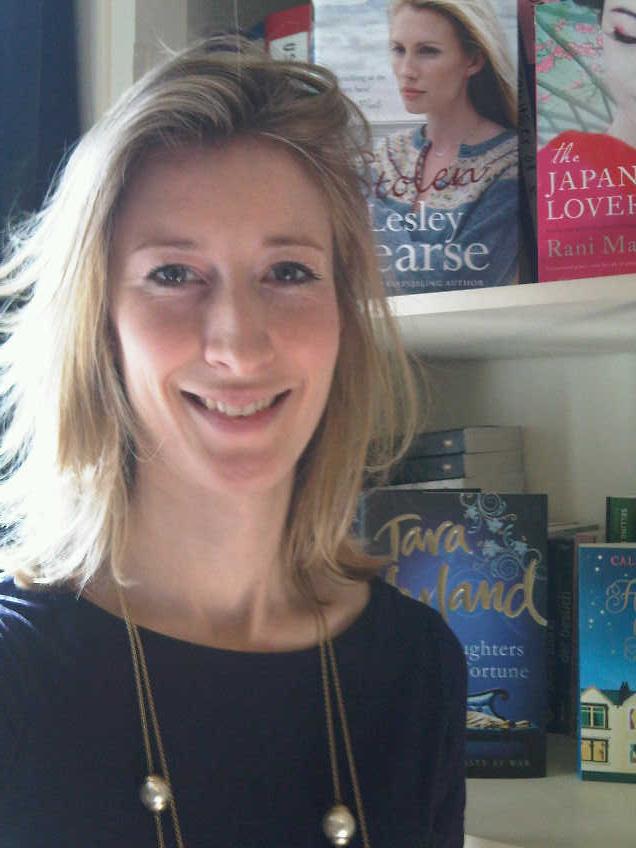by Jacqui Lofthouse
1. Set aside regular time each week for your writing and make it sacred. For example, make Sunday evenings your writing time and put it in the diary. Tell everybody you know that you’re busy and honour this time. It may seem a small step, but it’s a way to signal to yourself and others that you are committed. Once you can manage this, build more blocks of sacred time into your weekly schedule.
2. Have faith in the process. Works of art are organic things. Don’t put off beginning because you don’t have the whole thing plotted out. The final novel is not a thing that appears in one’s head fully formed. The more you work on it, the more it will grow in your imagination.
3. Perfect your writing space. Make sure that the place where you write is conducive to your work. It’s difficult for anyone to work at a desk that’s strewn with bills or work-related reports. Think carefully about what kind of space you would like to create for your writing. Does it include a pin-board covered in inspirational post-cards? A vase of flowers? Make this a space you long to return to. It could even be a nearby café or the reading room of an art gallery. When you are outside your normal environment, away from distractions, it can be easier to focus on the task in hand.
4. Build your characters first. It’s a myth that you must begin with plot. In truth, you can begin anywhere – with a theme, a location, an image that obsesses you. But if you start with characters and begin to imagine them as real, your plot is far more likely to ring true and have a dynamism that might otherwise be lacking. Ask yourself questions about your characters: What is their greatest fear? What do they wear in bed?
5. Just dive in. Fear and procrastination are you enemies. Remember, whatever you write on the page is only a starting point. The first sentence you write will not be the first sentence of your novel, I can guarantee it. It doesn’t have to be perfect. It just has to exist, in order that you may write the next sentence. “Get black on white” as Maupassant wrote. And keep doing it on a regular basis.
6. Carry notebooks wherever you go. Much of the work done on a novel is not done on the page, but in one’s head! And inspiration comes at unexpected moments. Keep one notebook in your bag, one at your desk, one by the side of your bed. Don’t let a single insight escape. If you don’t record it, you may lose it.
7. What makes a great plot? Wonderful plots often grow when you put characters in situations of conflict and just start writing. Unexpected things happen when you allow your characters and your unconscious mind free reign. The more you write, the more your sense of the ‘plot’ will grow. You will find the plot taking turns that you never planned. This doesn’t mean that the ideal of a good plot should not be studied – on the contrary – but don’t concern yourself with it, until you have characters that seem to live and breathe and a situation that fascinates you. This is half the work.
8. Move beyond the blocks. Free-writing is a wonderful technique for moving beyond writer’s block. Set a timer and simply start writing, making sure that your pen or fingers on the keyboard keep moving, no matter what. Write non-stop for 15 minutes with no expectation beyond the knowledge that you can get words on a page. Don’t judge yourself on this writing afterwards. Simply ask, “what was interesting about that?” Then you might like to begin again, diving into what you found fascinating, only this time, explore it in depth. Your unconscious mind has given you a gift.
9. Use visual and aural stimulation. If you feel your art is becoming stale, look outside yourself for inspiration. Rather than mining your own experience, expose yourself to new stimuli. Take time out and flick through art books or to listen to music. Make a pin-board of images that might influence your creation and mount it above your desk. If you don’t ‘fill the well’, it will soon be empty. Part of being an artist is about being alive to the world about you. Go out and actively seek inspiration.
10. Seek the support of a group. Writing can be a lonely occupation and a group of writing buddies can make a huge difference to your ability to stay motivated and inspired. With the help of the constructive criticism of others, your work develops more quickly too and you growth as a writer will accelerate. A group can also give you a deadline for producing work. Before you know it, you’ve written 5 pages, then 10, then 20… and suddenly, it’s looking like an entire novel is a possibility.
© 2006-09 Jacqui Lofthouse – http://www.thewritingcoach.co.uk
Jacqui Lofthouse is UK’s top writing coach. She has published three novels and has taught creative writing in a broad variety of settings including at City University, the Cheltenham Festival, for Artemisia holidays in Tuscany and at Richmond Adult and Community College. She has an MA in Creative Writing from the University of East Anglia and a trained coach. Jacqui has been profiled in ‘The Independent’ newspaper and her work has been reviewed in publications such as The Times, The Observer, The Telegraph and Time Out. You can find out more about Jacqui and sign up to her free newsletter here http://www.thewritingcoach.co.uk

